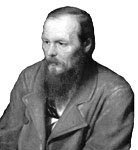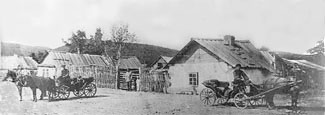Chapter 17. "The Problem of Evil " by Fyodor Dostoevsky

Dostoevsky, (detail) portrait by Vasily Perov, The State Tretyakov Gallery
About the author…
The novelist Fyodor Dostoevsky (1821-1881) spent four years in a Siberian prison and four more years in the army as punishment for his role in a clandestine Utopian-socialist discussion group. He became scornful of the rise of humanistic science in the West and chronicled its threat to human freedom. Dostoevsky's writings challenged the notion of the essential rationality of human beings and anticipated many ideas in existential psychoanalysis. For Dostoevsky, the essence of being human is freedom.
About the work…
In the The Brothers Karamazov,[1] Dostoevsky reveals deep psychological insight into the nature of human morality. In this, his greatest work, he expresses the destructive aspects of human freedom which can only be bound by God. In Chapter 4 of that work, the death of an innocent child is seen to be an inescapable objection to God's goodness. In this chapter Alyosha is the religious foil to Ivan, his intellectual older brother.
Ideas of Interest from The Brothers Karamazov
Why does Ivan think that children are innocent and adults are not? Why does he think we can love children when they are close, but we can only love our neighbor abstractly?
Does the General deserve to be shot for turning his hounds upon the child? Explain an answer from a religious point of view.
What does Ivan mean when he says, "I hasten to give back my entrance ticket."
List five or six possible explanations which are sometimes taken to account for the death of an innocent child in a universe created by God.
What does Alyosha mean when he says to Ivan, "That is rebellion"?

Siberian Convict Colony, Russia, Library of Congress